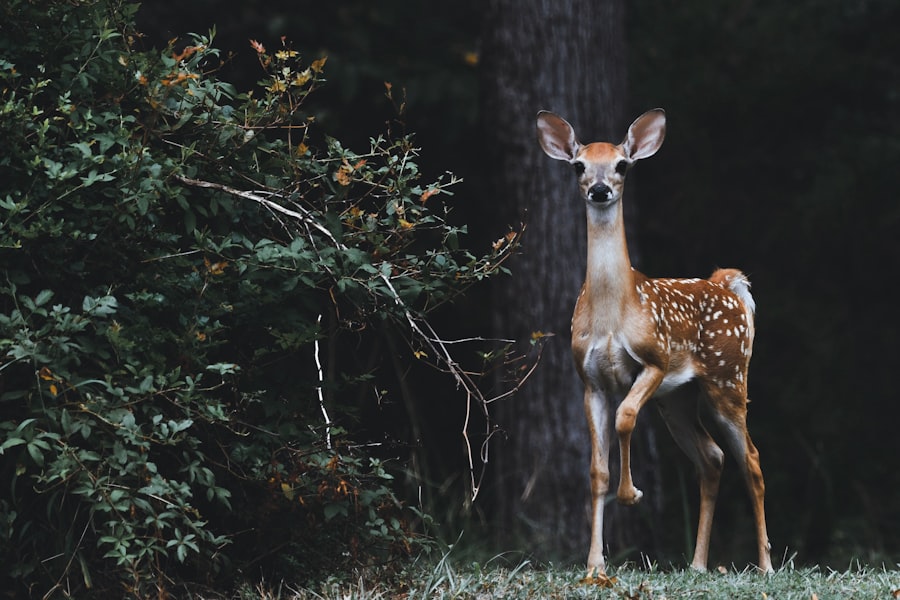Veganism is a lifestyle choice that involves abstaining from the use of animal products, including meat, dairy, eggs, and honey. It is a philosophy rooted in the belief that animals should not be exploited for human consumption. On the other hand, chicken keeping is a practice that involves raising chickens for various purposes, such as egg production, pest control, and companionship. While these two concepts may seem contradictory, they are often at odds with each other due to the ethical dilemma surrounding the treatment of animals.
Key Takeaways
- Veganism and chicken keeping can be a conflicting concept for some individuals.
- Keeping chickens as a vegan has both benefits and drawbacks.
- Eggs have nutritional value but may not fit into a vegan diet.
- Backyard chicken keeping can have a positive or negative environmental impact.
- Providing a humane living environment for chickens is crucial for ethical chicken keeping.
The ethical dilemma
The debate over whether keeping chickens as a vegan is ethical is a complex one. On one hand, some argue that keeping chickens in a backyard setting allows them to live a more natural and fulfilling life compared to factory-farmed chickens. They argue that by providing them with a safe and comfortable environment, regular access to fresh air and sunlight, and the ability to engage in natural behaviors such as scratching and pecking, vegans can still maintain their ethical stance while keeping chickens.
On the other hand, there are those who believe that keeping chickens for any purpose goes against the principles of veganism. They argue that even in a backyard setting, chickens are still being used for their reproductive capabilities and are therefore being exploited. They believe that veganism extends beyond just abstaining from consuming animal products and includes not using animals for any purpose.
Benefits and drawbacks
There are several benefits to keeping chickens in a backyard setting. One of the main benefits is having access to fresh eggs. Eggs laid by backyard chickens are often considered to be healthier and more nutritious than store-bought eggs. Additionally, keeping chickens can also provide natural pest control in the garden, as they eat insects and other pests.
However, there are also drawbacks to consider when it comes to chicken keeping. One of the main drawbacks is the cost associated with setting up and maintaining a chicken coop. Building a coop, purchasing feed, and providing veterinary care can be expensive. Additionally, keeping chickens requires a significant time commitment, as they need to be fed, watered, and their coop needs to be cleaned regularly.
Nutritional value of eggs
Eggs are a highly nutritious food that is often consumed by non-vegans for their high protein content and essential vitamins and minerals. They are a complete source of protein, meaning they contain all nine essential amino acids that the body needs. Eggs are also rich in vitamins such as vitamin A, vitamin D, vitamin E, and B vitamins. They also contain minerals such as iron, zinc, and selenium.
For those who choose not to consume eggs for ethical reasons, there are several alternatives available. One popular alternative is tofu or chickpea flour scramble, which can be seasoned and cooked to mimic the texture and taste of scrambled eggs. Another alternative is flaxseed or chia seed mixed with water, which can be used as a binding agent in baking recipes.
Environmental impact
Backyard chicken keeping can have both positive and negative environmental impacts. On the positive side, chickens can help reduce food waste by consuming kitchen scraps and leftovers. They also produce high-quality fertilizer that can be used in the garden. Additionally, chickens can help control pests naturally, reducing the need for chemical pesticides.
However, there are also negative environmental impacts to consider. Chicken waste can contribute to water pollution if not managed properly. Additionally, the production of chicken feed requires significant resources such as land, water, and energy. It is important for chicken keepers to minimize their environmental impact by practicing sustainable methods such as composting chicken waste and sourcing feed from local and organic sources.
Humane living environment

Providing a humane and ethical living environment for chickens is crucial for those who choose to keep them as vegans. Chickens should have access to a spacious and secure coop that protects them from predators and extreme weather conditions. They should also have access to a run or outdoor area where they can engage in natural behaviors such as scratching and foraging.
It is important to provide chickens with a balanced diet that meets their nutritional needs. This includes providing them with a variety of grains, fruits, vegetables, and protein sources. Chickens should also have access to fresh water at all times.
Animal welfare organizations
Animal welfare organizations play a crucial role in promoting vegan-friendly chicken keeping practices. These organizations provide resources and information on how to provide a humane and ethical living environment for chickens. They also advocate for the rights of animals and work towards ending the exploitation of animals for human consumption.
Some popular animal welfare organizations that focus on chicken welfare include The Humane Society of the United States, Compassion in World Farming, and The Animal Welfare Institute. These organizations provide educational materials, workshops, and support for those interested in learning more about ethical chicken keeping.
Legal considerations
Before embarking on chicken keeping as a vegan, it is important to consider the legal requirements and regulations in your area. Some cities and municipalities have specific regulations regarding the keeping of chickens, such as the number of chickens allowed, coop size requirements, and noise restrictions.
In some areas, permits may be required to keep chickens. It is important to research and comply with these regulations to ensure that you are keeping chickens legally and responsibly.
Challenges and rewards
Raising chickens as a vegan comes with its own set of challenges and rewards. One of the main challenges is finding a balance between veganism and chicken keeping. It can be difficult to navigate the ethical dilemma surrounding the use of animals while still enjoying the benefits of keeping chickens.
However, there are also many rewards to be gained from raising chickens as a vegan. The joy of watching chickens roam freely in your backyard, the satisfaction of collecting fresh eggs, and the sense of self-sufficiency that comes from producing your own food are all rewarding aspects of chicken keeping.
In conclusion, finding a balance between veganism and chicken keeping is a personal decision that requires careful consideration of ethical, environmental, and personal factors. It is important to explore ethical and sustainable practices in chicken keeping, such as providing a humane living environment, sourcing feed from local and organic sources, and minimizing environmental impact.
By educating ourselves and seeking guidance from animal welfare organizations, we can ensure that our chicken keeping practices align with our vegan values. Ultimately, the goal should be to promote the well-being of animals while still enjoying the benefits that come from keeping chickens in a backyard setting.
If you’re wondering whether it’s possible to be vegan and still keep chickens, you’ll find some valuable insights in this informative article from Poultry Wizard. They discuss the ethical considerations and practical aspects of raising chickens while maintaining a vegan lifestyle. For those interested in creating a comfortable living space for their feathered friends, Poultry Wizard also offers a helpful guide on how to insulate a chicken coop, which can be found here. Additionally, if you’re thinking of repurposing a shed into a chicken coop, Poultry Wizard has another great resource that provides step-by-step instructions on how to do so, available at this link.
FAQs
What does it mean to be vegan?
Being vegan means abstaining from the use of animal products, particularly in diet, and an associated philosophy that rejects the commodity status of animals.
Can vegans keep chickens?
Yes, vegans can keep chickens as pets and for their eggs. However, vegans should ensure that the chickens are treated humanely and not exploited for their eggs.
Is it ethical for vegans to keep chickens?
It depends on the individual’s beliefs and values. Some vegans believe that keeping chickens as pets and for their eggs is ethical as long as the chickens are treated well and not exploited. Others believe that it is not ethical to keep any animals in captivity.
What should vegans consider before keeping chickens?
Vegans should consider the space and resources needed to care for chickens, as well as the time commitment required. They should also ensure that they are able to provide a safe and comfortable environment for the chickens, and that they are able to meet their dietary and health needs.
Can vegans consume eggs from their own chickens?
Some vegans choose to consume eggs from their own chickens, while others do not. It is a personal choice and depends on the individual’s beliefs and values. However, vegans should ensure that the chickens are treated humanely and not exploited for their eggs.
Meet Walter, the feathered-friend fanatic of Florida! Nestled in the sunshine state, Walter struts through life with his feathered companions, clucking his way to happiness. With a coop that’s fancier than a five-star hotel, he’s the Don Juan of the chicken world. When he’s not teaching his hens to do the cha-cha, you’ll find him in a heated debate with his prized rooster, Sir Clucks-a-Lot. Walter’s poultry passion is no yolk; he’s the sunny-side-up guy you never knew you needed in your flock of friends!







